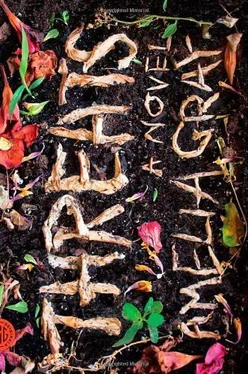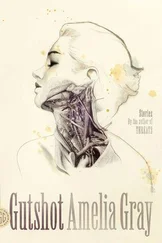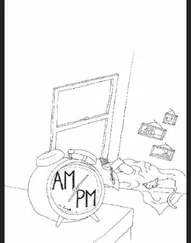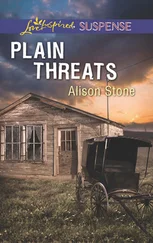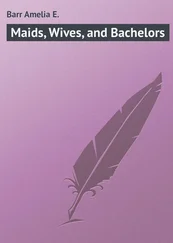The boy smiled and said nothing, which made her want to give him credit again, but she stopped herself and turned to finish loading the rest of the wash instead. As she moved shirts and jeans into the wash bin, she thought about the young man as he might appear later that day, standing in a room and doubting the motives of his closest friends. The thought filled her with such joy that her heart welled up, and two small tears dropped into the wash at such a perfect moment that she felt certain it was the end of the world’s connected problems.
THE HOUSE shifted in the dark. Drifts of dust gathered in the corners of the windows and thickened with the moisture in the air into a damp sludge. On one west-facing window ledge David found a dry layer of dead flies. He wrapped them up in a few squares of toilet paper and threw them into the trash, their bodies crushed together between his fingers, forming a new kind of body.
He had to dig the television out of the basement. He knew it was under the workbench, which itself was pinned under stacks of documents that had once, in theory, been essential. He burrowed into the top stratum of utility bills and found a layer of patient X-rays he’d brought home after cleaning out his office at work, when he rented a van and had everything moved out within six hours, the girls standing in a silent line watching him, snapping their sugar-free gum. He had loaded the last of the supplies and applauded the girls before loading himself into the van’s cab. He clapped for them wildly, with genuine feeling. One of the hygienists curtsied, but the rest stared, arms crossed. They had just lost their jobs, after all.
It was not legal to keep patient records at his private residence, particularly considering the manner in which he left the practice, but the X-rays had been too meaningful to leave to the industrial shredder. He thought of them as art objects, blue-tinged, individually flawed. He had known all the teeth in his collection, thousands of teeth, enough to fill a bathtub or pave a road. He thought of an ivory paved road leading to some foreign city. Franny’s cooking magazines made a glossy layer under them. Under that, delicate pages from years prior, Franny’s mother’s old recipes, their ink blanked with time. They tore like tissue paper when he moved them. The television was underneath.
David brought the television set upstairs and placed it on the coffee table next to the package of cremains. He plugged it in and adjusted the bent antenna until he got a picture. A game show was on, and he watched a family clutching one another and calling something out toward a screen. The volume dial on the set was missing, and he couldn’t figure out the rules of the game. He watched the family hold one another and weep. The evening news came on, and he watched spectators walking around a plane crash. The scene changed to one of a horse being brushed by a woman with long hair. The horse was beautiful and the woman was all right. He watched the weather, where more snow seemed to be suggested by a tired-looking man wearing a red blazer. The picture changed again, this time to a dark screen, and David leaned forward to adjust the contrast and then realized that it was his house, filmed at night. The caption read “Police Question Husband.” He used his fingernails to turn the knob where the volume dial had once been, but the speaker had been crushed by the pressure of the elements that had been stored above it, and all that emerged was a low buzzing sound. He watched as, exactly as Aileen had described, the camera pulled in to reveal his own shadowy figure moving behind the curtain of one of the illuminated front windows.
“I’ll be,” David said. He watched himself standing, watching the road. He imagined the newscasters speculating on what he might be thinking at that moment by the window, which had stretched to include all moments. He would need to do something to hinder the intrusion of the world outside his home. He thought of Franny’s security plans above the dresser, then of the plywood in the garage. He thought of Marie in the garage.
The old television had markings on the sides, where David as an eight-year-old had carved into it with a penknife. David’s father found the vandalism, smacked his son’s bottom with a newspaper, took the knife, and hid it. This was right after his mother left for a week and right before she left for good. The marks were glyphs dug into the side, pictographs transcribed from top to bottom, which David had made while his father was in the basement and David was in the living room, watching cartoons designed to fully occupy his brain.
David touched the incised grooves with the tips of his fingers and then the palm of his hand. He tipped the television to its other side to see if he could read more of the old markings but instead saw a deep inscription that must have been made with a professional engraving tool:
I COULD DEVOUR YOU.
The threat was carved vertically, letters stacked over one another like a totem display. Each carved letter featured individual flaws yet seemed perfectly uniform in relation to the others, as if the engraver had made light pencil marks and later wiped them clean with a rag.
It was immediately important to David that he leave the room. In the kitchen he ate a pear. It occurred to him that, though he had eaten hundreds of pears in the past, if not thousands, this pear was different from every single one he had ever eaten, wholly unique, and, in fact, as he ate it, he was opening parts of the pear that had never been experienced by anyone, human or animal. When his maxillary incisors pierced the skin, which first protected the fruit as it had against rain and sun and then yielded to the invasion, he was oxygenating particles that had never even been open to oxygen. The wet fruit and seeds had existed in darkness for their entire lives until he tore them out with his teeth.
LONG AFTER the other detectives had come and gone and the cleaning crew stopped in to empty the trash bins, Chico remained in his office, paging through the dream interpretation book. Marie had asked for a few statements of meaning for their next session. He looked up “tree,” “forest,” and “clothing.” In his notebook he wrote “transitional phase,” “searching for understanding of self,” “wasting energy,” and “perception of public self.” He could smell the pages of the old dream book and the rot in the walls around him. It was dark outside. He drew a line through “wasting energy.”
Staying late that day was more of a moral requirement than an above-and-beyond kind of display. Chico had spent most of the day standing at the window and wondering which finger he could do without if he was forced to make that decision. He didn’t like the look of his left thumb, but it seemed the pinkie finger on his nondominant left hand had the lowest use profile of any. He examined the finger’s nail. It was a fine digit overall, but he could do without it if necessary.
It seemed unfortunately possible that David was capable of doing harm to his wife. Chico had failed to discern a motive or means, but the possibility was there, which made it an option worth considering. Women seemed to make David particularly nervous. Though he did not seem to display a violent tendency, it was worth noting that a nervous individual was capable of performing surprising acts. And then there was the hereditary potential toward premeditated violence, stemming from the actions of David’s mother, which Chico maintained had not been an act of insanity, despite what a team of well-paid lawyers flew in to suggest. They convinced a jury of the woman’s peers of the insanity defense, which Chico had never suspected would transpire, given the woman’s total lack of insanity, in his opinion. On breaks from the trial he saw her doing her taxes, producing a small calculator from the pocket of her professional slacks.
Читать дальше
